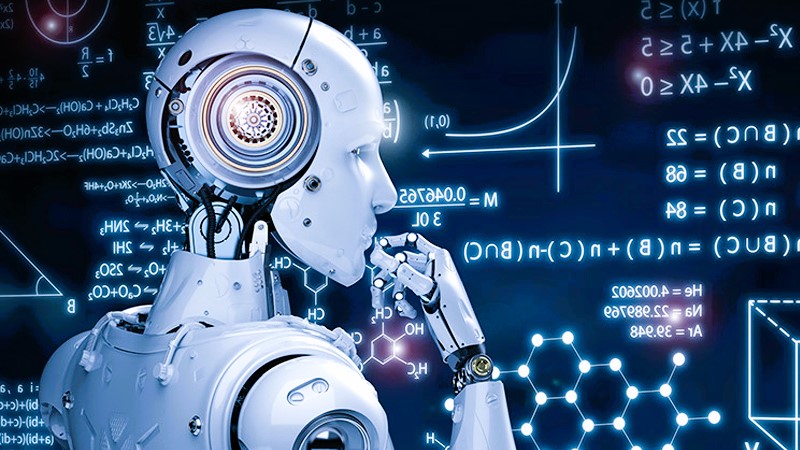In the ever-evolving landscape of computing, Artificial Intelligence (AI) has emerged as a transformative force, reshaping the way we process, analyze, and derive insights from data. The integration of AI technologies into computing systems has ushered in a new era of efficiency, intelligence, and innovation. In this comprehensive exploration, we’ll delve into how AI is being harnessed for smarter computing, revolutionizing industries, enhancing user experiences, and paving the way for a future where machines operate with unprecedented intelligence.
Understanding AI in Computing:
Artificial Intelligence (AI): AI refers to the development of computer systems capable of performing tasks that typically require human intelligence. These tasks include problem-solving, speech recognition, learning, and decision-making. Machine Learning (ML) and Deep Learning (DL) are subsets of AI that focus on enabling systems to learn and improve from experience.
1. Smarter Data Processing:
AI algorithms excel at processing vast amounts of data quickly and accurately. In the realm of computing, this translates to smarter data processing capabilities. Whether it’s sifting through large datasets for pattern recognition or optimizing data workflows, AI enhances the efficiency and speed of data-related tasks.
2. Predictive Analytics:
AI-driven predictive analytics is transforming how computing systems analyze data to forecast future trends and outcomes. By leveraging historical data and identifying patterns, AI algorithms can make accurate predictions, enabling businesses to make informed decisions and proactively address challenges.
3. Intelligent Automation:

Automation powered by AI is streamlining computing processes by automating repetitive tasks and decision-making. Intelligent automation systems can adapt to changing conditions, learn from experience, and make decisions with minimal human intervention. This leads to increased operational efficiency and resource optimization.
4. Natural Language Processing (NLP):
NLP enables computers to understand, interpret, and generate human-like language. In computing, this manifests in applications such as chatbots, virtual assistants, and language translation services. NLP-driven systems enhance user interactions, making computing interfaces more intuitive and user-friendly. Read the latest news about Removing flash drives from Windows devices.
5. Cognitive Computing:
Cognitive computing systems, inspired by the human brain’s ability to process information, learn, and make decisions, are at the forefront of AI in computing. These systems can understand unstructured data, reason through complex scenarios, and continuously learn from new information, making them powerful tools for tackling intricate computing challenges.
6. Enhanced Cybersecurity:
AI plays a pivotal role in fortifying cybersecurity measures. Machine learning algorithms can detect and respond to cybersecurity threats in real-time, identifying patterns indicative of malicious activities. AI-driven cybersecurity solutions provide a proactive defense against evolving cyber threats.
7. Personalized Computing Experiences:
AI tailors computing experiences to individual preferences and behaviors. Whether it’s content recommendations, personalized user interfaces, or adaptive learning platforms, AI enhances user experiences by delivering content and services that align with individual preferences.
8. Optimizing Resource Management:
In computing environments, AI optimizes resource management by dynamically allocating resources based on demand. This applies to cloud computing, where AI algorithms can scale resources up or down in response to changing workloads, ensuring efficient resource utilization.
9. Autonomous Systems:
The integration of AI into computing systems is driving the development of autonomous systems. From self-driving cars to automated drones, these systems can navigate and make decisions independently. AI’s ability to process real-time data and adapt to dynamic environments is instrumental in enabling autonomy.
10. Continuous Learning Systems:

AI enables computing systems to engage in continuous learning. Through feedback loops and exposure to new data, AI algorithms can update and refine their models, ensuring that computing systems evolve and improve over time. This adaptability is crucial for staying relevant in rapidly changing technological landscapes.
Platforms for Staying Informed:
Stay informed about the latest developments at the intersection of AI and computing by exploring platforms like GameSpot. While primarily focused on gaming, these platforms often feature articles and discussions on broader technology topics, providing insights into how AI is influencing the computing landscape.
Conclusion: A Future of Smarter Computing
As AI continues to advance, its integration into computing systems is unlocking unprecedented possibilities. Smarter computing, empowered by AI, is characterized by enhanced efficiency, intelligent decision-making, and personalized user experiences. Industries ranging from healthcare to finance and from education to entertainment are benefiting from the transformative capabilities of AI. Embrace the power of AI for smarter computing, stay informed about the latest advancements, and anticipate a future where machines operate with unprecedented intelligence, improving our lives and reshaping the way we interact with technology.


